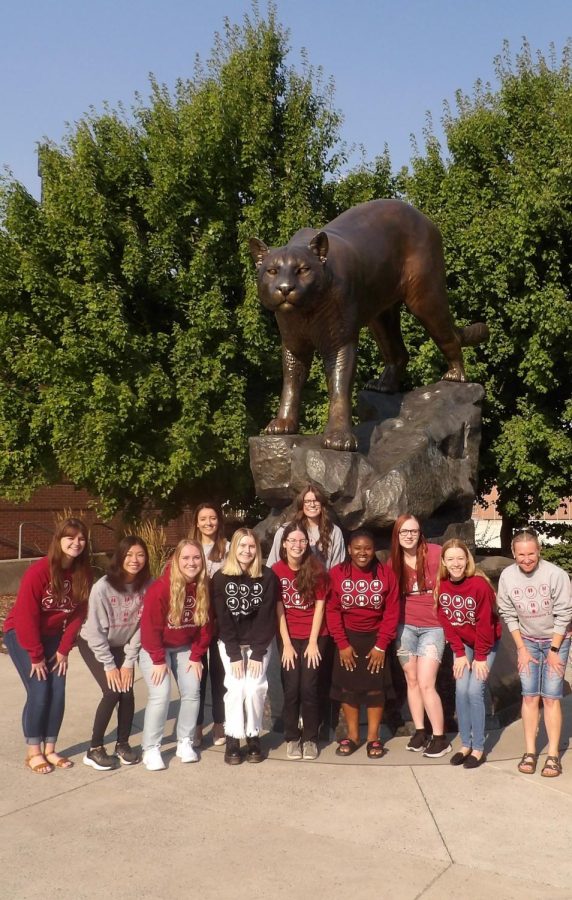WSU Lab researches how babies interact with our world
Infant Temperament Lab discovers role of microstates and other factors in babies’ temperament
June 6, 2023
A WSU lab is conducting ongoing research on infant temperament, or the early differences in babies’ interactions with the world around them.
The WSU Infant Temperament Lab’s goal is to examine child socioemotional development and the factors that influence it, graduate researcher Victoria Jones wrote in an email. Their research can help caregivers understand their infants’ temperament, which some researchers consider to be the basis of personality.
Maria Gartstein, WSU professor and clinical training director established the lab, which is also known as the Gartstein Temperament Lab, graduate researcher Kara Brown said. The lab is located on the first floor of the Johnson Tower on WSU’s Pullman campus.
The lab’s research is divided into a questionnaire portion and a lab portion, Brown said. The questionnaire allows caregivers to report on the babies’ temperament at home. Then, in the lab, the babies interact with researchers who measure their brain development and how temperament is developing in their brains.
Researchers give the babies different tasks that relate to real-world experiences to elicit different emotions, Brown said. For example, the babies are made to play peek-a-boo with their caregivers to elicit excitement.
The babies also participate in toy removal, an exercise where their caregivers take away a toy they were playing with for a while to elicit frustration, as well as the still-face task, where the caregiver disengages in expression from the baby.
“Another piece of our research is knowing how caregivers’ behaviors can impact the infant as well … so it’s not just about what’s going on for the baby in the room, but also how Mom is influencing that and how Mom’s behaviors might be able to help baby develop,” Brown said.
One of the findings of the lab’s research was in the area of microstates, which is the electrical activity of the brain that changes over time, Brown said. The lab found that microstates exist in babies as young as six months old, and the microstates correspond with temperament.
The lab also found that differences in fecal bacteria in babies play a role in individual differences in temperaments, according to the lab’s Instagram.
”The importance of the research comes down to neurodevelopment, understanding how the brain is changing over time across tasks and if that has any implications for cognitive development, emotional development and social development,” Brown said.
The Netflix documentary series “BABIES” has an episode in its second part, “Nature and Nurture,” that features the lab and its activities, Brown said.
The lab has been conducting three studies on infant temperament the past year and will continue these studies for about four to five more years, Brown said. People can sign up to take part in the research through the lab’s website, as well as email Gartstein to get involved. The lab is always looking for participants.










